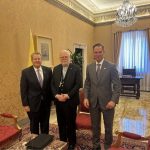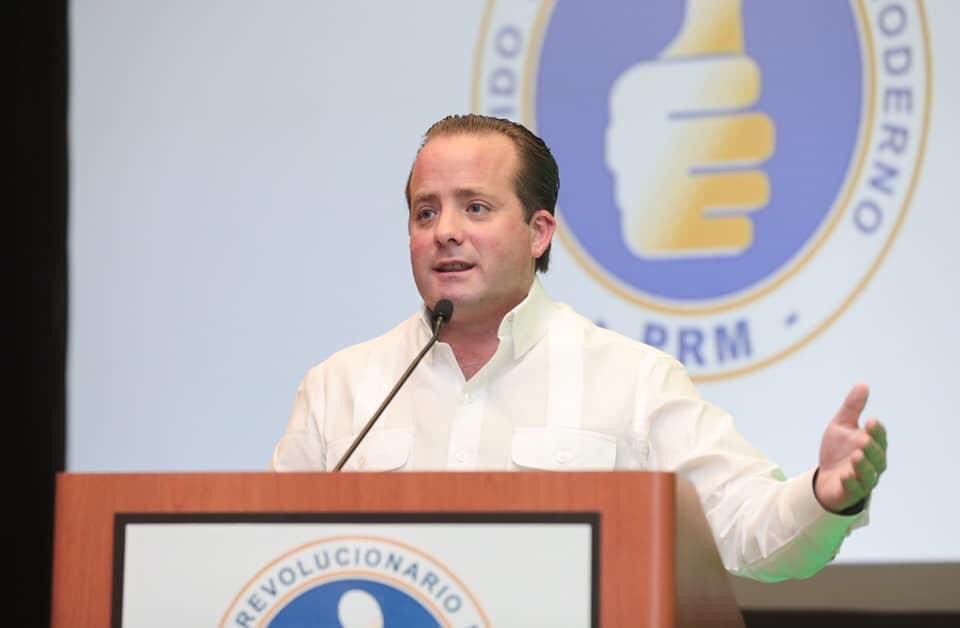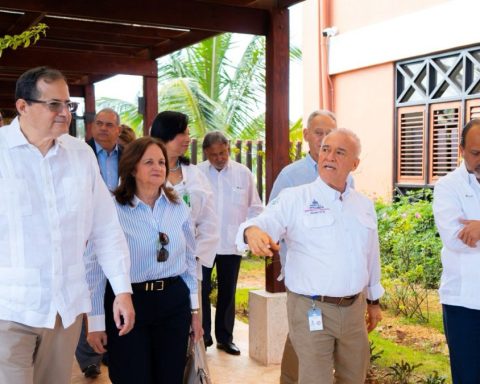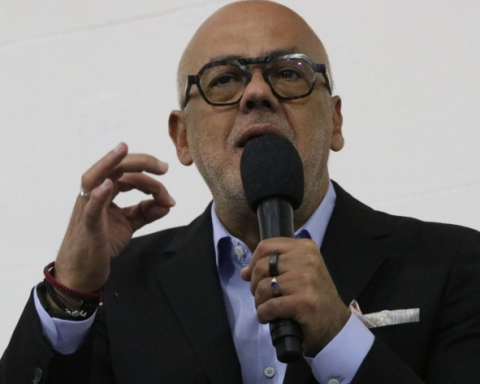The International Monetary Fund (IMF) does not foresee a global recessionbut will lower its growth forecasts for 2022 and 2023 due to the war in Ukraine and its effect on inflationas announced by the general director of the institution, Kristalina Georgieva, worried about afragmentation” of the world.
In January, even before Russia invaded Ukraine, the IMF had already lowered its global growth forecast for this year to 4.4%, due to the Omicron variant of covid-19, but revised its projections for next year upwards.
The war in Ukraine shattered these predictions. Unleashed on February 24 with the Russian invasion of Ukraine, the war has aggravated inflation, which is “currently a real danger” to global economic recovery, Georgieva said.
“In a nutshell: we are facing a crisis on top of another crisis”, he lamented in a speech prior to the spring meetings of the IMF and the Bank world. “It’s obvious, but the root cause of what we are currently facing is war”, he insisted.
Georgieva has not revealed the growth projections for each country, which will be published next Tuesday. But she indicated that “the economy of most countries will remain on positive ground”. In other words, IMF economists do not anticipate a recession at this time.
Nevertheless, “the impact of the war in Ukraine will contribute to downgrading this year’s growth forecasts for 143 countries that represent 86% of world GDP”, indicated Georgieva.
The situation varies greatly from country to country. The economic projections for Ukraine are “catastrophic” and Russia’s GDP contraction forecast is “severe”, he warns.
He also stressed that the degree of uncertainty in the latest IMF forecast is far beyond the “usual”, because the war in Ukraine and the sanctions against Moscow could worsen and new variants of covid-19 are likely to emerge.
RUSSIAN DEFENSE MINISTRY / AFP
The risk of inflation
The main risk is that inflation stay high for a long time and therefore be much more difficult to control.
After a decade of almost silent inflation, prices around the world began to skyrocket last year as consumption by the global population soared after the economic paralysis caused by the covid-19 pandemic in 2020. In recent weeks, the Russian invasion of Ukraine and the sanctions imposed on Moscow have pushed up fuel and food prices.
Ukraine and Russia are major grain producersY the latter is also a key energy source for Europe. Therefore, the economic repercussions are felt beyond the Central and Eastern European region.
Inflation, which has broken a record in four decades in the United States, is “currently a real danger” for many countries and hits the poorest hardest, Georgieva lamented in a speech at the Carnegie Endowment for International Peace, a Washington think tank. He believes that this trend will probably continue for longer than expected. “It is a major drag on the global recovery”, he added.
It also considerably complicates decision-making because if, in order to curb the price boom, interest rates are raised, the main central banks will increase the borrowing costs of emerging and developing countries, which are already highly indebtedyes “This is the most complex political environment of our time,” opined Georgieva, who called on monetary institutions to “act with determination”.
Ending the war and the pandemic are top priorities to ensure prosperity, he added.
“Fragmentation”
The director of the IMF also warned about the “growing fragmentation of the world economy into geopolitical blocs” that harms the ability to deal with current and future crises. This will lead to a “change” that would reshape, for example, global supply chains.
The war in Ukraine has raised “legitimate issues” on how countries can continue to work together, he commented. But “the answer cannot be isolation and fragmentation”, he concluded. He gave as an example the end of the Cold War, which allowed “a new era of prosperity“, in which “the global economy has tripled and the great beneficiaries have been the emerging markets in developing economies”.
European Central Bank maintains rates despite record inflation
The European Central Bank (ECB) decided on Thursday to keep its main interest rates at zerodespite a record inflation aggravated by war in Ukraineand confirmed that it will continue with its debt purchases until “the third quarter” of this year.
Unlike the big central banks, the Frankfurt-based European institution is so far one of the few that has not yet decided to raise its rates, despite inflationary pressures.
The euro zone registers unprecedented inflation in several years, which approached 8% annually in March, four times more than the 2% target set as ideal by the ECB. However, the first ECB interest rate hike is expected to take place “some time after” the end of the purchase of debtsscheduled for the third quarter of the year, according to the institution.
At the moment, the main interest rate remained at zero and the one applied to part of bank liquidity not distributed in credit remained negative at 0.50%.
Keeping this monetary policy unchanged and without raising rates had an almost immediate effect. the euro falling below $1.08 on Thursday, a level not seen since May 2020.
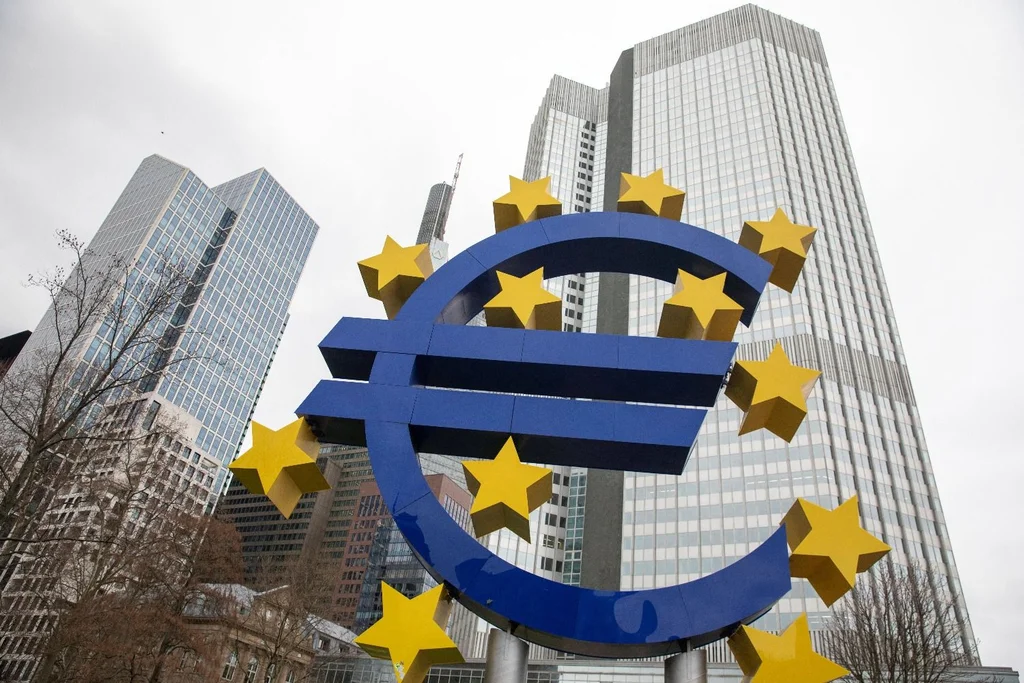
ANDRE PAIN / AFP
European Central Bank
In most cases in the world, from Washington to London to Seoul, interest rates they have already started to increase to fight inflation. But comparing the North American and European economies “it’s like comparing apples and oranges” justified the ECB President Christine Lagarde. “The euro zone is the most exposed and the one that will suffer the most from the consequences of the war,” she said.
falcons and doves
On the other hand, lockdowns in China to fight new outbreaks of covid-19 also disrupt maritime trade, accentuating pressure on supply chains. In this context, the debate within the Council of Governors of the ECB would oppose, according to observers, “pigeons” Y “hawks”.
The former advocate maintaining an expansionary monetary policy so as not to put the economic recovery at risk.
But the “hawks”, supporters of a stricter approach –and who would slowly take the ascendant role in the debate– they consider inflation to be a risk, with its consequent pressures for wage increases.
A challenge for the Fed
The The Central Bank of the United States can reduce inflation by raising interest rates without jeopardizing the growth of the economybut it is a challenge, said an official of the Federal Reserve (Fed).
“I think we can make a soft landing“, He said president of the New York Fed, John Williams, in an interview with Bloomberg.
Williams claimed that the Fed’s interest rate hikes are “very suitable” to board imbalances between supply and demand in the US economy without causing a recession.
“It will not be easy”, he acknowledged however, given the “unique circumstances” facing the economy due to the ongoing challenges of the pandemic and the war in Ukraine. In mid-March the Fed increased its reference interest rates by a quarter of a percentage point to take them to 0.25-0.50%, in the face of inflation at its highest level in 40 years and that could continue to increaseaccording to your forecasts.
The decision was widely expected by the market and It was the first rate hike since 2018.
In this way, the entity Chairman Jerome Powell began a cycle of tightening his monetary policy to try to put a brake on inflation.
Annualized inflation in the United States Registration in March its highest level in more than 40 yearsmainly due to skyrocketing gasoline prices especially with the war in Ukraine.
Prices they rose 8.5% in 12 months, compared to 7.9% in February, according to the Consumer Price Index (CPI) published last Tuesday by the Department of Labor.
Source: AFP









